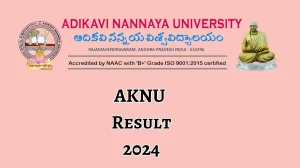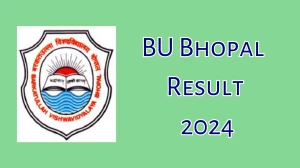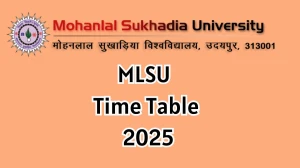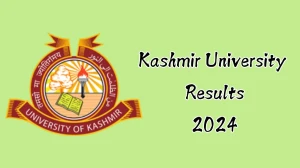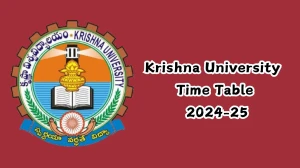- Rojgarlive »
- Education »
- CLAT Syllabus 2025 at consortiumofnlus.ac.in Check And Download Syllabus PDF Here
CLAT Syllabus 2025 at consortiumofnlus.ac.in Check And Download Syllabus PDF Here
by Keerthika
Updated Sep 05, 2024
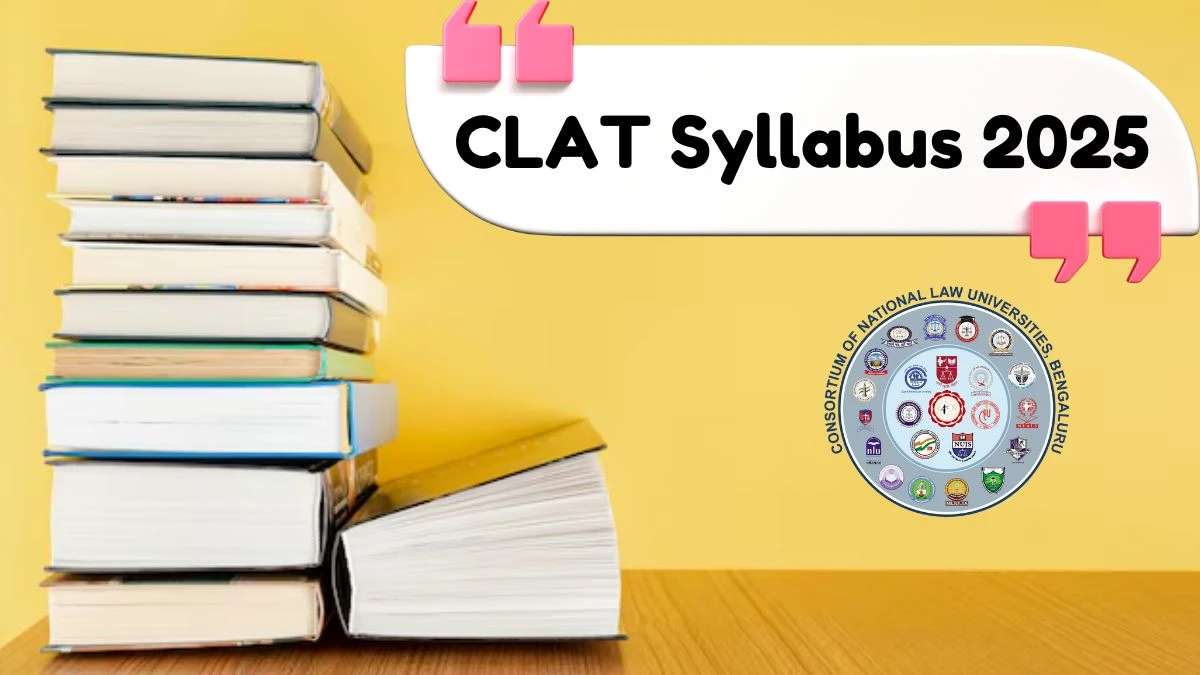
CLAT Syllabus 2025 @ consortiumofnlus.ac.in
The Consortium of National Law Universities (NLUs) has announced the CLAT 2025 syllabus for both UG and PG entrance exams. The official CLAT syllabus 2025 PDF is available below in this article. The CLAT 2025 syllabus comprises five sections: English Comprehension, General Knowledge including Current Affairs, Legal Reasoning, Logical Reasoning, and Quantitative Techniques. For CLAT PG 2025, the syllabus includes topics from various areas of law. The CLAT syllabus is designed to assess candidates' critical thinking, analytical skills, and reading comprehension abilities.
Check - CLAT Syllabus 2025
UG Syllabus
Introduction and Overview
The UG-CLAT 2025 would focus on evaluating the comprehension and reasoning skills and abilities of candidates. Overall, it is designed to be a test of aptitude and skills that are necessary for a legal education rather than prior knowledge, though prior knowledge occasionally may be useful to respond to questions in the Current Affairs including General Knowledge section.
The UG-CLAT 2025 shall be a 2-hour test, with 120 multiple-choice questions carrying 1 mark each. There shall be negative marking of 0.25 marks for every wrong answer. These questions would be divided across the following 5 subjects:
- English Language
- Current Affairs, including General Knowledge
- Legal Reasoning
- Logical Reasoning
- Quantitative Techniques
English Language
In this section of the UG-CLAT 2025, you will be provided passages of about 450 words each. These passages will be derived from contemporary or historically significant fiction and non-fiction writing, and would be of a standard that a 12th standard student may be able to read in about 5-7 minutes.
Each passage will be followed by a series of questions that will require you to demonstrate your comprehension and language skills, including your abilities to:
- Read and comprehend the main point discussed in the passage, as well as any arguments and viewpoints discussed or set out in the passage;
- Draw inferences and conclusions based on the passage;
- Summarise the passage;
- Compare and contrast the different arguments or viewpoints set out in the passage; and
- Understand the meaning of various words and phrases in the context that they are used in the passage.
Current Affairs Including General Knowledge
In this section, you will be provided passages of up to 450 words each. The passages will be derived from news, journalistic sources and other non-fiction writing. The questions may include an examination of legal information or knowledge discussed in or related to the passage, but would not require any additional knowledge of the law beyond the passage.
Each passage will be followed by a series of questions that will require you to demonstrate your awareness of various aspects of current affairs and general knowledge, including:
- Contemporary events of significance from India and the world;
- Arts and culture;
- International affairs; and
- Historical events of continuing significance.
Legal Reasoning
In this section, you will be expected to read passages of around 450 words each. The passages may relate to fact situations or scenarios involving legal matters, public policy questions or moral philosophical enquiries. You will not require any prior knowledge of law to attempt the questions in this section. You will benefit from a general awareness of contemporary legal and moral issues to better apply general principles or propositions to the given fact scenarios.
Each passage would be followed by a series of questions that will require you to:
- Identify and infer the rules and principles set out in the passage;
- Apply such rules and principles to various fact situations; and
- Understand how changes to the rules or principles may alter their application to various fact situations.
Logical Reasoning
The Logical Reasoning section of the UG-CLAT 2025 will include a series of short passages of about 450 words each. Each passage will be followed by one or more questions that will require you to:
- Recognise an argument, its premises and conclusions;
- Read and identify the arguments set out in the passage;
- Critically analyse patterns of reasoning, and assess how conclusions may depend on particular premises or evidence, and how conclusions may be strengthened or weakened as a consequence of an alteration in premises or supporting facts;
- Infer what follows from the passage and apply these inferences to new situations;
- Draw relationships and analogies, identify contradictions and equivalence, and assess the effectiveness of arguments.
Quantitative Techniques
The Quantitative Techniques section of the UG-CLAT 2025 will include short sets of facts or propositions, or other textual representations of numerical information, followed by a series of questions. You will be required to derive information from the passages or questions, and apply mathematical operations on such information.
The questions will require you to:
- Derive, infer, and manipulate numerical information set out in such passages; and
- Apply various 10th standard mathematical operations on such information, including from areas such as ratios and proportions, basic algebra, mensuration and statistical estimation.
Preparing for the UG-CLAT 2025
The Consortium plans to publish various preparatory materials for the UG-CLAT 2025, including:
- Guides to the question paper and sample questions;
- Model question papers; and
- Instructional materials and exercises for each of the subjects that the UG-CLAT 2025 comprises.
The Consortium will also provide candidates who have successfully completed their application to the UG-CLAT 2025 access to a learning platform where you may access the preparatory materials described above, as well as your scores on various exercises and model question papers. The Consortium shall also organise online sessions for such candidates, in which subject experts shall provide guidance on how best to prepare for each of the sections of the UG-CLAT 2025, and how candidates may approach the questions in each section.
In addition, you should develop your capacity to read and understand bodies of text, ensure you stay abreast of news and current affairs by regularly reading quality newspapers and periodicals, and improve your speed of answering questions on quantitative techniques by practising with materials such as 10th standard mathematics textbooks.
Exam Pattern:
-
UG CLAT:
- Each section features 4-6 passages with related questions.
- The difficulty level is aligned with the class 12th standard.
-
PG CLAT:
- Questions are based on detailed knowledge of various legal subjects.
- Emphasis on understanding and application of legal principles.
PG Syllabus & Guide
Introduction and Overview
The PG-CLAT 2025 will feature an emphasis on the comprehension abilities of the students. It shall be of 120 minutes duration, with one sections:
- The first section would include 120 objective-type questions carrying 1 mark each. There shall be a negative marking of 0.25 marks for every wrong answer.
The paper will be based on the mandatory subjects of the undergraduate program and include Constitutional Law, Jurisprudence, Administrative Law, Law of Contract, Torts, Family Law, Criminal Law, Property Law, Company Law, Public International Law, Tax Law, Environmental Law, and Labour & Industrial Law.
Objective Section
In this section of the PG-CLAT 2025, you will be provided extracts from primary legal materials such as important court decisions in various fields of law, statutes or regulations. Each passage will be followed by a series of questions that will require you to demonstrate the:
- Ability to read and comprehend the issues discussed in the passage, as well as any arguments and viewpoints discussed or set out in the passage;
- Awareness of the issues discussed in the passage, as well as of legal issues and facts related to and arising out of the passage and the judgment or statute from which it is extracted;
- Summarise the passage; and
- Ability to apply your knowledge of the fields of law discussed in the passage.
Preparing for the PG-CLAT 2025
As part of your preparations for the PG-CLAT 2025, you should:
- Read and refresh your knowledge of important judgments, and try to discern various issues discussed in such judgments;
- Refresh your knowledge of important constitutional and legislative provisions, particularly those that may have been discussed in recent judgments; it would also be useful to ensure you are aware of historical case law and amendments related to such provisions, so that you have a more complete awareness of such provisions and the issues related to them;
CLAT Syllabus 2025? -FAQ
The official CLAT 2025 syllabus PDF can be found on the Consortium of National Law Universities' (NLUs) website or within the article providing details about the CLAT 2025 syllabus.
The CLAT 2025 syllabus comprises five main sections: English Comprehension, General Knowledge and Current Affairs, Legal Reasoning, Logical Reasoning, and Quantitative Techniques.
